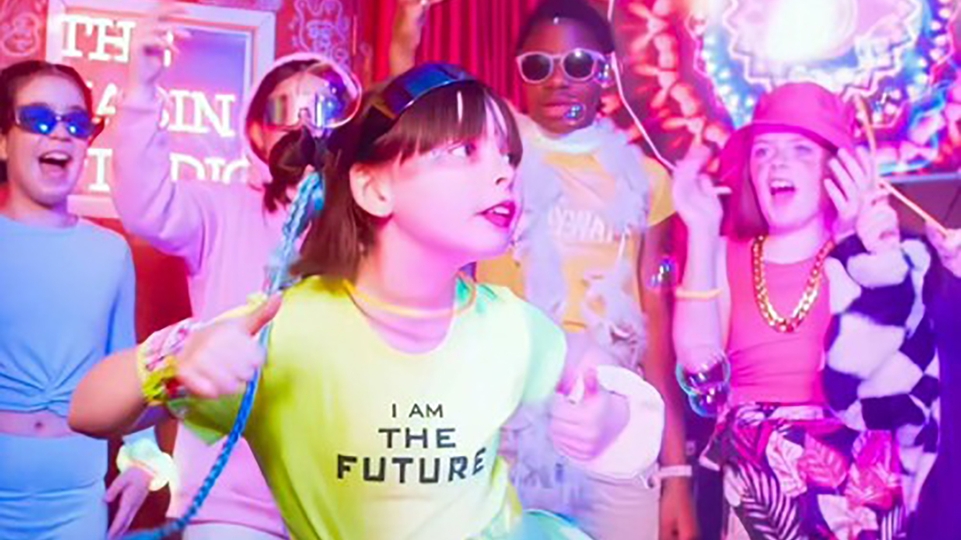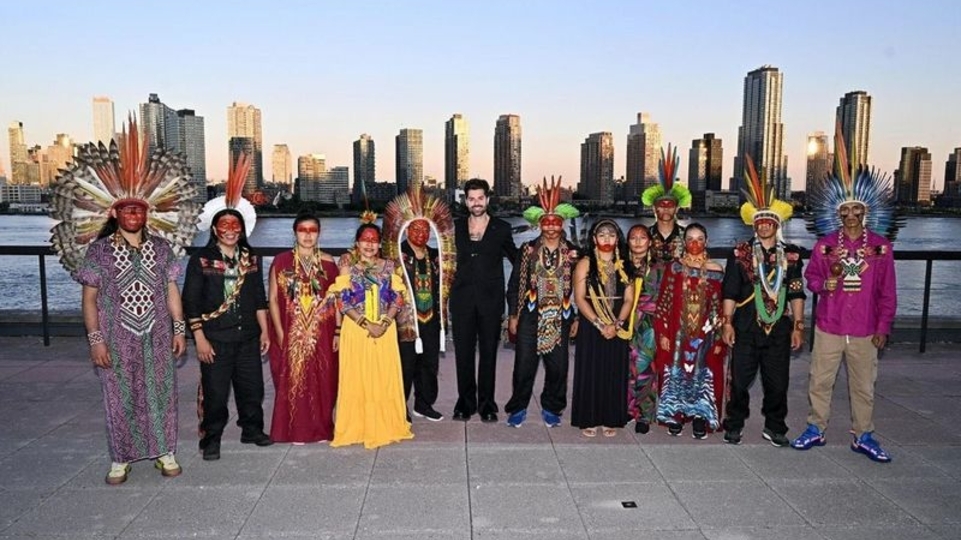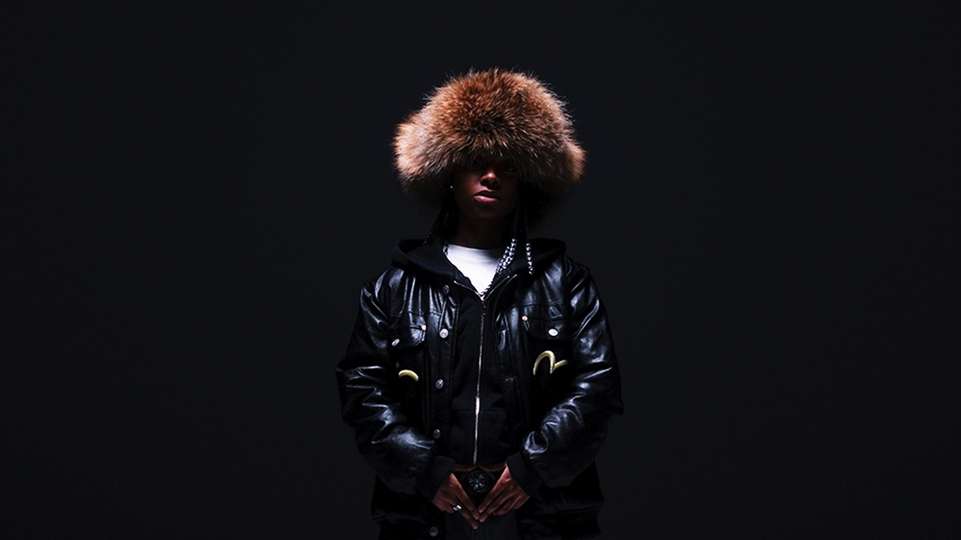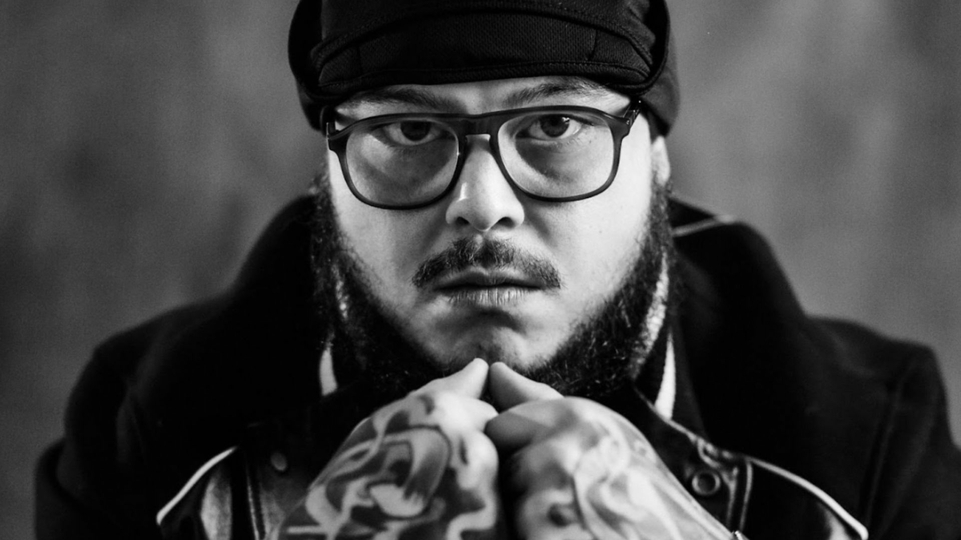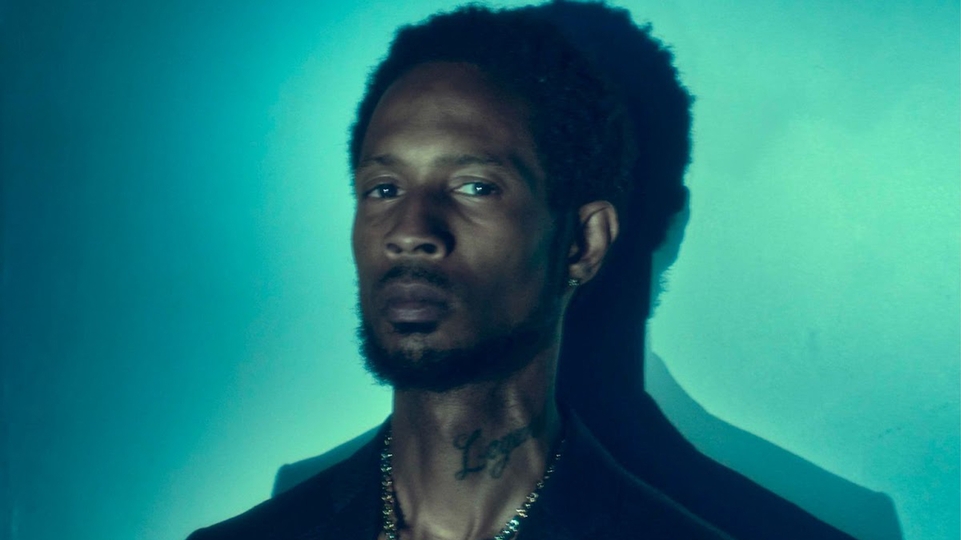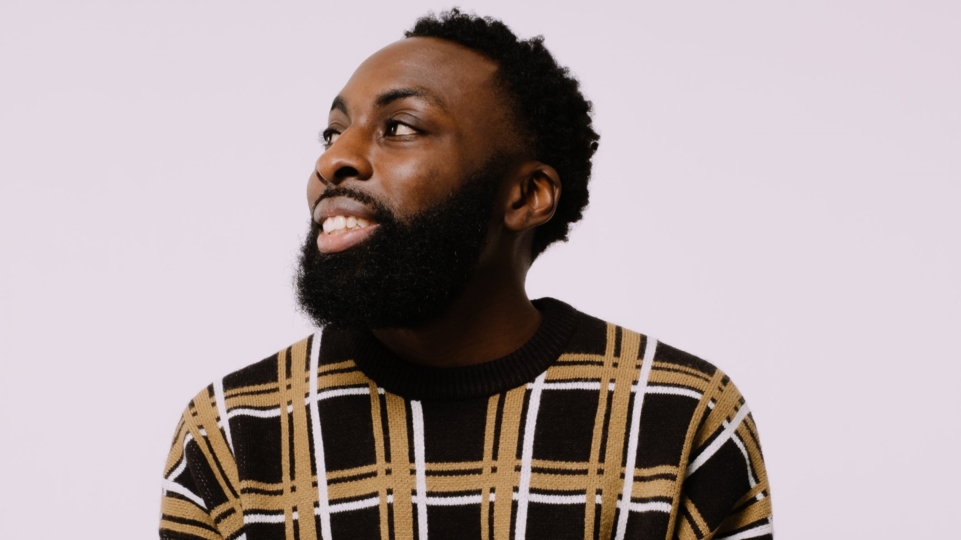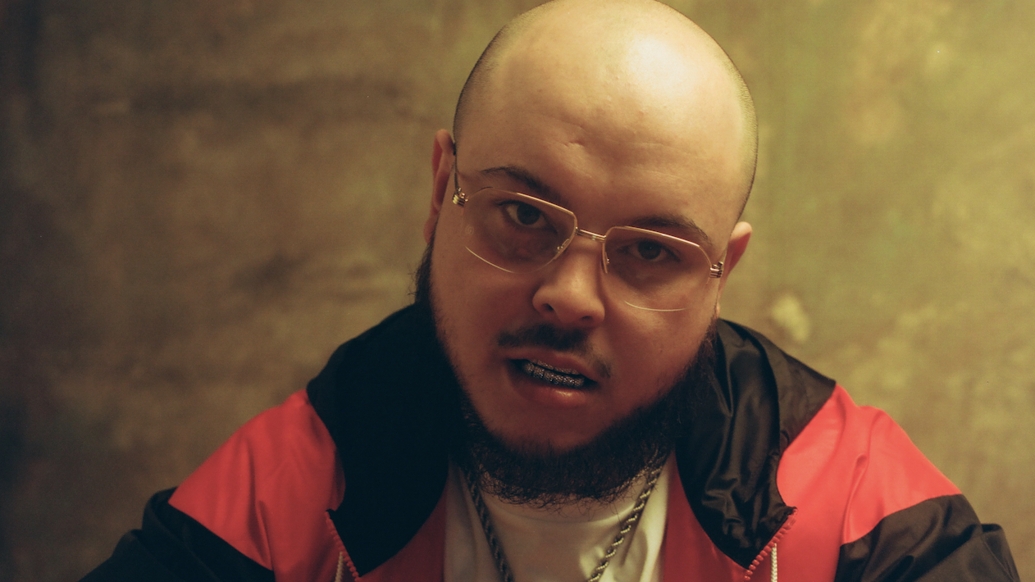
Potter Payper: The road to redemption
A key artist in UK rap’s second generation, Potter Payper emerged from his most recent stint in prison on a tidal wave of creative energy that resulted in ‘Training Day 3’, a mixtape that peaked at No.3 in the UK Albums Chart. Ahead of his follow-up tape, ‘Thanks For Waiting’, the East London MC talks about finally seeing himself as a rapper, and how he’s gone from an underrated artist to a fully-fledged star
Potter Payper is lucky to be here. How lucky depends on how deep you probe into the many lives he’s lived. Actually, ‘luck’ probably isn’t the right word for it, because even though some of the most pivotal moments in his life have come down to chance encounters, what’s actually driven him from birth right to the present moment is a bloody-minded determination that is something to behold.
“Some people that don't know me might say my man's a road man, a drug dealer,” he tells DJ Mag over a very shaky Zoom call. “Other people say my man's a jail cat. But the majority of people will say my man used to be an MC, he loves spitting. I used to spit on the roads, on the block, at the youth clubs. Even my mum tells me: ‘You didn't get lucky, you worked hard for this. You've been doing this since you was a yoot’.”
“That's why my ting's so strong, fam, because I treated it like trapping. How I used to go OT [out trapping] with packs, I used to go with CDs and hand them out. I felt no shame if they didn’t know me. I'm like, ‘Bruv, trust me. Just listen. You might frisbee my CD out the window as soon as you hit the corner, but fuck it. Take it’.”
On Christmas Day last year, Potter and his team released a documentary that followed the Barking rhymer from the moment he stepped out of prison for the last time — three-and-a-half years of a six-year sentence for ‘county lines’ trafficking — until more or less the documentary’s release. In the opening seconds, you can hear Bills, Potter’s manager, say, “He was a rapper to us, but he didn't see himself as a rapper.”
So, what changed? When did he finally start to see himself as a rapper? “I would say, to be 100 with you, when I walked out of the gate in 2020.” Really? “Everyone's saying to me, ‘You're the hardest,’ but I didn’t have time for this. This was not my profession. I was a career criminal, bruv. I've been to prison 14 times. I've spent more than 12 years of my life behind bars.”
That change didn’t happen in a vacuum, it came from within, but not without a little push. The seeds for that moment were planted during his actual sentence when Stormzy name-checked him at his historic Glastonbury performance. “The next morning, prison officers are busting my door saying, ‘My man bigged you up on Glastonbury! When you get out, you better fucking do something!’” As it turns out, his release on that date was far from guaranteed. Over the course of his sentence, he had an additional 190 days added, but a stint in segregation changed his path forever.
“The governor of the prison came into my room one day. I was sitting on my bed and I must have just looked like such a fucking scumbag. My beard's all wild, my hair's all crazy, the hairline's mad, the bird's nest is on 10/10. I probably looked like a proper wrong'un. She sat on my bed and said to me, ‘What are you doing, man? Why are you doing life the hard way? You're even doing prison the hard way. I see you in this segregation unit more than I care to see anybody in my days. So what is going on?’"
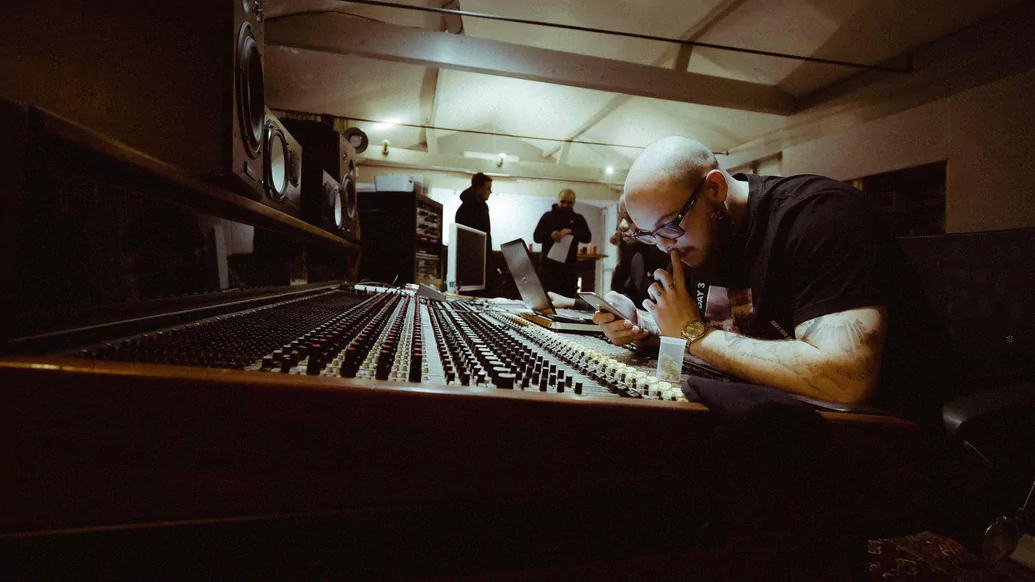
Her question landed like a sucker-punch. “When she left my room and the door slammed behind her, I was just left with that question: Why do I have to do everything the hard way? Why do I always have to come back to prison? Why do I always have to sell drugs? Is there something wrong with me? That's the question you have to ask yourself. Then the answer comes: Nah, there ain't. These are all choices. I just never make the choice that's best for me.”
After that sobering moment he spent the rest of his sentence cleaning himself up. “I'm training, I'm doing push-ups, I'm doing workouts, I'm doing all of these things, and the more I do it, the better I feel,” Payper explains. After getting back into gen pop he focused entirely on music, tirelessly writing what would become ‘Training Day 3’.
But let’s take it back for a moment. The foundations of ‘Training Day 3’ were laid when Potter first put pen to paper when he was a teenager in Aylesbury Young Offenders. “That trilogy is nine years in the making behind the door,” he tells me. But, as his mum says, he was always writing, driven by his mum’s love of music, especially the harder-edged dancehall and bashment. “It would be shit vibes, shit times, everyone's broke, but the music's still running. That's how man grew up.”
Growing up on the infamous Gascoigne Estate in Barking, real name Jamel Bousbaa, he spent much of his youth knocking around with older kids, following their musical cues. Stateside, it was all about Styles P, Jadakiss, Papoose, Dipset, and The Jacka, but closer to home, it was the nexus of jungle’s twilight years, garage and the very earliest hints of grime.
“I used to go with the older boys on my estate to pirate radio stations, youth clubs and that. I'd hang around them and I used to cat everyone's lyrics. Then I’d go to school or around my friends of my age and I'd just spit all olders' lyrics." He soon got caught out and quickly moved on to writing his own lyrics, but felt bored and frustrated by grime and garage MCing. “There weren't really much to write with them lyrics. It's ‘duh-numa-numa-numa-nuh’ and bare lyrical Mk 10 shit.”
Potter comes from what is essentially UK rap’s second generation, alongside Nines, Skrapz and Mover, a rapper whose influence on Potter would extend far beyond his music — but more on that later. “I didn't like UK rap at that time,” he confesses. “This is like 2000, 2001, 2002. So it was all like G-Force, SAS, and everyone was very Americanised in their style of rapping.”
It wasn’t until UK hip-hop made way for UK rap that Potter became interested. “Skinnyman, Klashnekoff and then later people like Joe Black, people like that who were very truthful, very reality-based. I identified with them,” he says. “Collective-wise, it was Mashtown, P.D.C [Peel Dem Crew, later Poverty Driven Children], that's what shaped my style of rap.” Even with those foundations, however, the infrastructure was still far from what it is today. “There was no rap scene. It wasn't like that.”
So when it came to recording ‘Training Day 1’, there wasn’t the legion of world-beating producers we have today. “Man was just spitting on American beats that man liked because that was the state of the game at the time,” but for Potter, that was enough — at least to start.
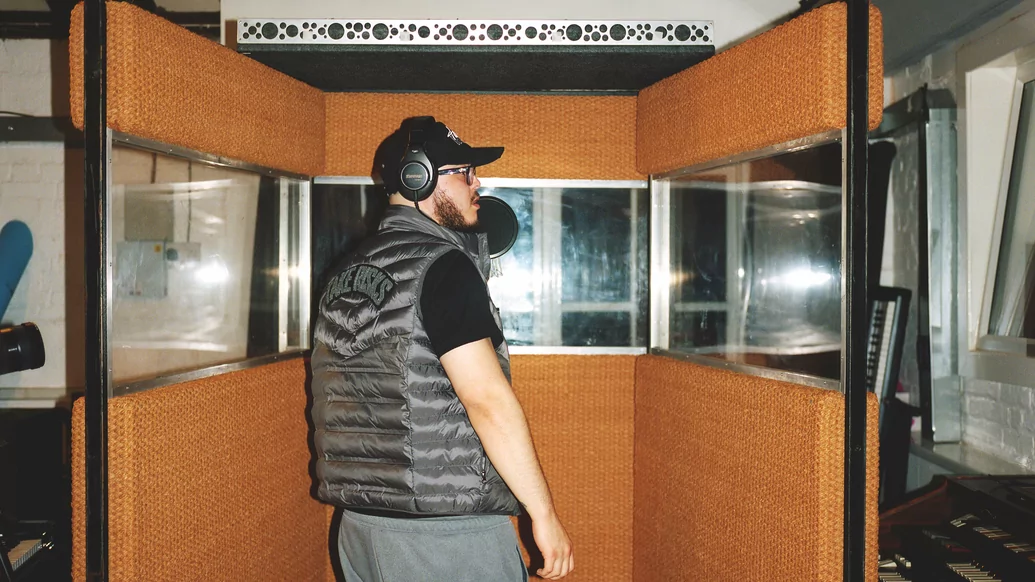
“They take one look at me with my glasses and my bad hairline and they're saying, ‘Why would we want to listen to this guy? What's going on?’ Literally, school kids. They're my biggest fans now, bro. But these times, they was not taking man in”
In Aylesbury Young Offenders he met a young Birmingham rapper called KB, and the pair signed themselves up for a music course as part of the prison’s education system. “We used to write lyrics in the night-time, wake up, go to the music class and record our shit. And because he's a good rapper and there were quite a few good rappers in the jail at the time, I always wanted to be better than everyone, so I kept writing, and then before I knew it I had ‘Training Day 1’ — and then some. I had loads of lyrics.
“Then I came out at the end of 2012 and my boy Flex, who sadly passed away a year later, was a youth worker so he had the keys to a youth club in the area. So when the youth club shut, he'd say to me, ‘Come, I'll open it and I'll record for you’. So I used to go there and that's where I recorded ‘Purple Rain’, ‘Hustlin’, ‘Too Much Years’. He engineered so many of my big, big songs and was instrumental in the beat selection.”
Flex’s situation was far from ideal, though. “I could only record at night when he could open the doors, so it weren't guaranteed booth,” he says. Eventually, Flex suggested he record a freestyle for seminal online rap platform Blackbox. Impressed with Potter after a session that has since gone down in rap history, Blackbox founder Lotes offered him all the recording time and space he needed — and it’s no exaggeration to call that offer a lifeline.
“I've always been a spitter. So if I had to shot all day and then I had five hours of spare time, I could never think of a better way to use it other than to go to the studio and rap. I was broke, so I couldn't show off any other way. That was my way of letting everyone know that I've got thoughts and feelings as well. These times, I was just recording, recording, recording, and by the end of it we had like 30 or 40 tunes.”
So how does Denzel Washington and Ethan Hawke’s iconic police drama of the same name connect to Potter? “That was one of my favourite films at the time. It still is, but it was at the forefront of my mind when I was inside and the metaphor behind it. It's like I'm Denzel Washington and when people are listening to me, I'm taking them on their Training Day. You're coming with me and by the end of it,” he laughs, “I might get done by the Russians.”
Having recorded ‘Training Day’, he borrowed some money from an auntie to buy 1,000 hard copies to sell around Essex. It’s not going so well, but he and his pals persevere, stopping any and every passerby. “They take one look at me with my glasses and my bad hairline and they're saying, ‘Why would we want to listen to this guy? What's going on?’ Literally, school kids. They're my biggest fans now, bro. But these times, they was not taking man in.”
He persevered, though, hopping on Facebook to use the few rudimentary social media tools available at the time. “I'd go on Facebook and I'd inbox every single person that I knew, I'd send them a link to my video and say, ‘Share that on your wall’. If they never did it, I'd take it mad personally. I'd actually think to myself, ‘I don't fuck with this guy no more. He's a prick. He's not trying to support my ting’.”
He couldn’t see it at the time, but his bloody-mindedness was paying off. Soon, with just one mixtape and a Blackbox freestyle to his name, sites like GRM (then GrimeDaily), SBTV and LinkUp TV all began to pay attention and he recorded freestyles for them all within the space of a month. Frustratingly, he soon found himself back in prison, but all was not lost, and whether he liked it or not, a momentum was gathering with or without him.
Not surprisingly, the years Potter Payper has spent incarcerated have taken a toll. He tells DJ Mag how touched he is when fans tell him that his music helped them get through a tough moment, but has it helped him heal at all? Between prison and the traumas of spending your entire adult life navigating road life, you get the impression that what Potter’s prepared to share — and he’s prepared to share more than most would — is just the half of it. He pauses before responding cautiously: “I would say I'm on my way.”
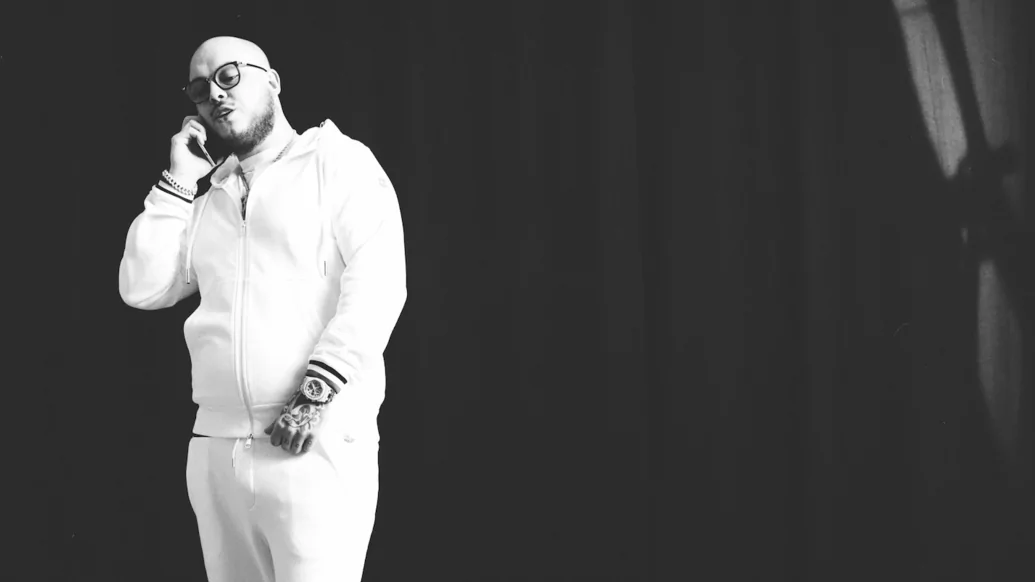
When you really get down to it, it’s clear he’s no longer self-sabotaging or “blocking his blessings” as he puts it, but the most important thing is that he doesn’t want to let it warp him, to make him more cynical or, conversely, egotistical in any way. “I'll be real with you: yeah, maybe it's hard for me to even admit that I've started healing, but all of these experiences and all of this trauma would've made me a very hard and horrible person and I ain't let it do that, so I must have healed at least to a point.”
Although Potter would find himself in prison again, he emerged from his most recent stint on a tidal wave of creative energy. Travelling straight from prison to the recording studio, he recorded six tracks in one day and soon after the ‘20/20 Vision’ EP was out in the wild. “That's when I thought to myself, I'm a rapper.” Unfortunately, as it turns out, the EPs must have no more than four tracks to be eligible for a chart position, but it didn’t matter. By the time the EP had landed he was already close to completing ‘Training Day 3’.
“I always knew it was gonna be what it was gonna be. Did I know it was gonna be top three? No, are you crazy? What I did know was that my core fanbase, the streets, are going to fuck with this. I knew all eyes were on me, so everyone was going to give it at least one listen and once they did that they'd be hooked, bro. This is crack! I'm like Franklin Saint of the music game!”
If this sounds like bravado, don’t be fooled. Potter can back up every last one of his claims — “The reality, bro, is none of these guys are my competition. My competition is Lil Durk, Lil Baby. These international guys” — with talent, hard work and planning. “Basically, when I was away I had a plan that I wanted to come out, do ‘Training Day 3’, but if that didn't work I had a contingency. I was at that point where this is what I was going to do. So my contingency plan was that I know a lot of rappers and they all respect me. I'm my own best A&R so I said to myself, I'm gonna make [latest mixtape ‘Thanks For Waiting’] and it's gonna be feature-heavy. If a label don't want to give me no money for myself, they'll at least give me the money for everyone else's verses.”
Still, it’s clearly taking him a minute to adjust to his new life. Before his last stint in prison, he was underrated; respected in the underground, a ‘rapper’s rapper’. But since his release he’s a fully fledged star. “I can't even walk in the streets anymore,” he laughs. But he is, and he has the credentials to prove it: he’s signed to 0207 Def Jam, he has an imprint called 36, his collaborative ‘Thanks For Waiting Tape’ is out (1st October), and then, finally, after all these years, five mixtapes and a few mistakes, we’ll finally get the first ever Potter Payper studio album. No pressure.

